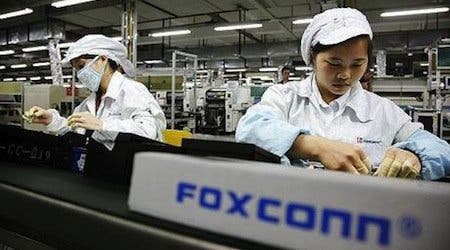Why Apple doesn't do more to improve Foxconn working conditions - report
"Because the system works for us," says former exec.
Foxconn, the enormous Chinese manufacturer that pieces together products for Nintendo, Microsoft and Apple, among many others, has been the subject of numerous recent reports of atrocious working conditions and employee suicides.
With every new story, commentators are invariably quick to ask "why don't the platform holders hold Foxconn accountable and demand change?"
Well, an anonymous former Apple executive has offered a little insight as to why that doesn't happen.
"We've known about labour abuses in some factories for four years, and they're still going on," the source told The New York Times.
"Why? Because the system works for us. Suppliers would change everything tomorrow if Apple told them they didn't have another choice."
"If half of iPhones were malfunctioning, do you think Apple would let it go on for four years?"
The New York Times report adds that there is a desire within the company to bring about change at the plant, but that falls by the wayside when conflicts crop up over the need to deliver new products on time.
Apple has brought in a code of conduct that it expects suppliers to adhere to, and some improvements have reportedly been seen.
Its published reports insist that every disclosed labour violation be addressed, and suppliers that refuse to do so are terminated. However, former executives admitted that, in reality, finding a replacement supplier capable of picking up such a huge manufacturing burden would be both expensive and time consuming so infractions are often over-looked.
"If you see the same pattern of problems, year after year, that means the company's ignoring the issue rather than solving it," said another former Apple executive.
"Non-compliance is tolerated, as long as the suppliers promise to try harder next time. If we meant business, core violations would disappear."
Another source suggested that Apple's demanding list of requirements and the meagre profit margins offered to suppliers is partly to blame for corners being cut and labour regulations being neglected.
"The only way you make money working for Apple is figuring out how to do things more efficiently or cheaper," said an executive at a company who worked with Apple on the iPad. "And then they'll come back the next year, and force a 10 per cent price cut."
Apple is "not going to leave Foxconn and they're not going to leave China," predicted Heather White, a former member of the Monitoring International Labor Standards committee at the National Academy of Sciences. "There's a lot of rationalisation."
Apple, who earlier this week announced quarterly profits of around $13 billion, declined to comment for the story.

